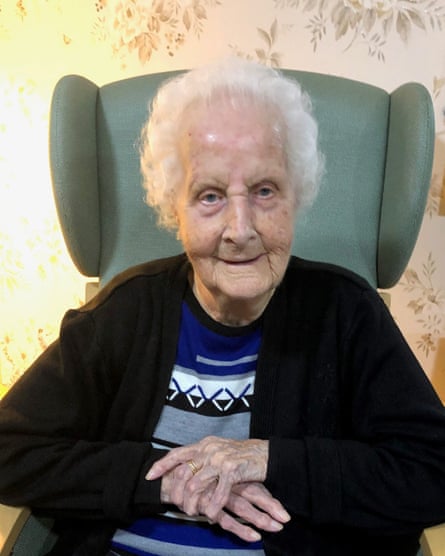Families locked out of seeing loved ones in care homes during the Covid crisis have stepped up calls for a new law to prevent it happening again, amid reports of restricted visits still “causing extreme distress”.
Before the third anniversary of the UK’s pandemic lockdown, people who missed the last stages of their relatives’ lives voiced anger that some care homes still deny access despite a government promise to stop the practice. Four months ago, the care minister Helen Whately said she would “fix” the “misery, despair and anger at being kept away from someone you are desperately worried about”.
Diane Mayhew, a co-founder of the Rights for Residents campaign group, said: “Too many are still stopping families from seeing their loved one, even in end-of-life situations.
“It is causing extreme distress and it has to stop.”
Some care homes have closed completely to families during Covid outbreaks, contrary to government guidance.
The new law would grant anyone in a care home or hospital the right to at least one care supporter who can give in-person support to them in all circumstances. Carole Hall, whose father, John Kneebone, 93, died in a Plymouth care home after 12 months of isolation, told Whately: “Get on with it.”
“For Dad, it was devastating,” she said. “He thought we’d abandoned him. He went downhill. I was tormented with worry about what the hell was going on in there.”
The proposed “Gloria’s law” is named after the mother of the musical theatre actor Ruthie Henshall. Henshall witnessed her mother’s decline through a care home window in 2020. On Monday she also challenged ministers, telling the Daily Mirror: “How do you want your last days to be? Maybe one day you’ll be in a care home and being waved at by your family.”
Whately said she was “working on further steps to make sure” government guidance was followed.
“I know how it feels to be told you can’t visit someone you love,” she said. “Last year, I didn’t know whether I would see my mother alive again when she was very ill in hospital and visiting restrictions meant I couldn’t see her. That is why I am so committed to making sure people can visit loved ones in care homes and hospitals.”

The Department of Health and Social Care confirmed it had received reports that guidance stating residents should always be able to receive at least one visitor was not being followed. It urged people affected to complain to the home or the Care Quality Commission.
Marie Tootell, who could not go inside a Lancashire care home to see her 99-year-old mother, Winnie Walmsley, for seven months in 2020, said: “It increased her unhappiness to the point where she was despondent.”
after newsletter promotion
Three days after she finally got in, her mother died. Winnie’s great-grandson, seven, still gets upset about not being able to see her before she passed away.
“This needs to be law,” Tootell said. “If somebody is going into a care home, it is their home.”
Helen Wildbore, the director of the Relatives & Residents Association, said Thursday’s anniversary of the first national lockdown would revive memories of “the inconsolable loss of not having chance to say goodbye”.
Referring to the continuing scandal over lockdown-breaking Downing Street parties, about which Boris Johnson will be quizzed in parliament on Wednesday, she said: “The contrast [with] the suffering of families could not be more stark. Now Whitehall has a chance to put this right and say: ‘Never again.’”
Labour’s Liz Kendall, the shadow care minister, said: “Labour continues to campaign for residents’ rights to visits to be enshrined into law, ending the scandal of blanket visiting bans. As we approach the third anniversary of lockdown, the government has run out of excuses for their continued dither and delay.”
Stay connected with us on social media platform for instant update click here to join our Twitter, & Facebook
We are now on Telegram. Click here to join our channel (@TechiUpdate) and stay updated with the latest Technology headlines.
For all the latest Covid-19 News Click Here
